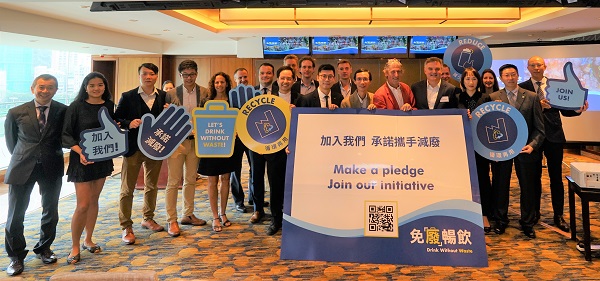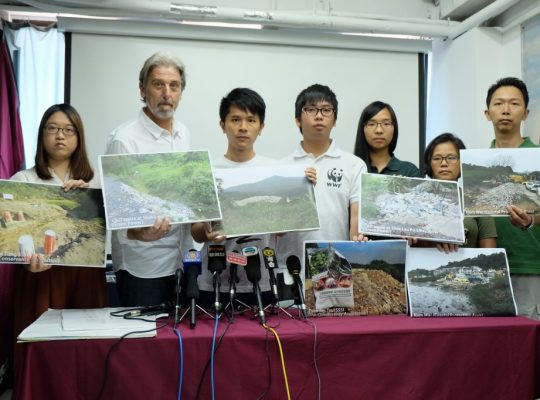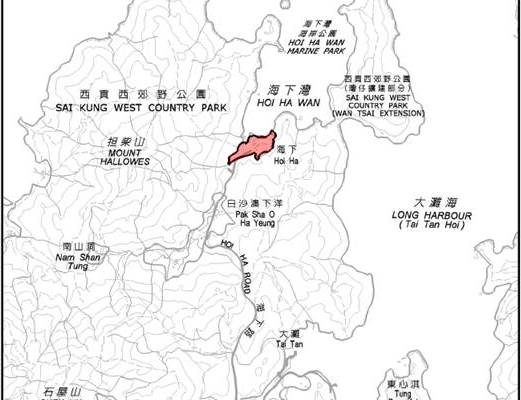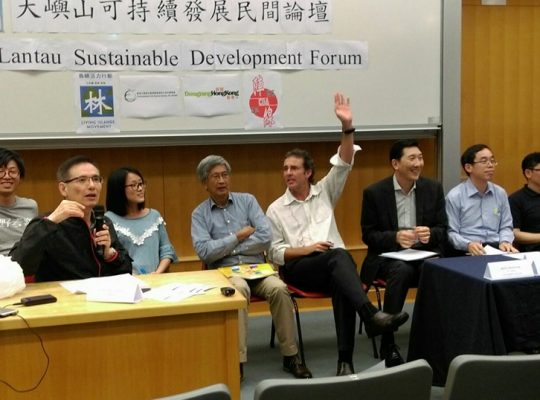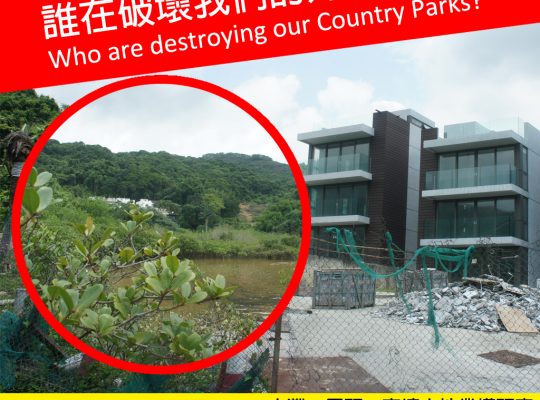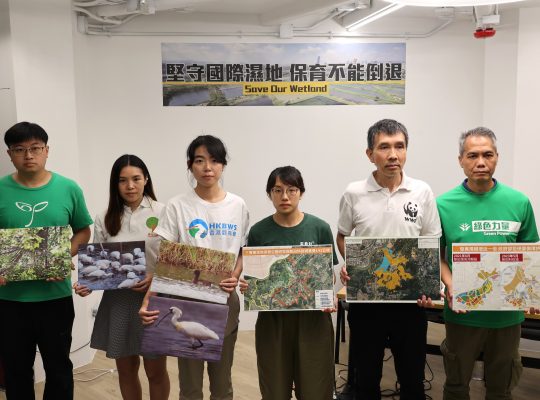飲品業龍頭企業與非政府組織攜手減廢 目標回收七至九成飲品包裝
• 去年,超過八成飲品包裝,即超過17億個容器遭棄掉浪費。
• 「免『廢』暢飲」行動支持推行廢包裝現金回贈計劃及及安裝飲水/品機。
• 促請香港特區政府規管包裝標準,並為回收工作提供支援。
• 飲料行業將採取自願措施減少垃圾。
2018年12月6日,香港:佔本港樽裝水和汽水近半銷售額的主要飲料生產商和裝瓶商,今天聯同主要連鎖零售商、回收業界及非政府組織,聯合宣佈其減少超過17億經使用及廢棄飲品容器的建議,以減低本地垃圾堆填區、郊野、海灘和海洋環境的壓力。去年,香港的PET樽回收率為9%,而紙包飲品盒的回收率更為0%。
一次性飲品包裝工作小組(下稱「小組」)在香港成立,旨在減少從非酒精飲品消耗所產生的廢物。該工作小組在去年十二月正式啟動免「廢」暢飲行動,推動本港達致七成至九成 PET容器及紙包飲品盒回收率為目標。小組深信,只要政府、生產商、零售商、回收商以至消費者能通力合作,上述回收率增長可在2025年或之前得以實現。
綠惜地球創辦人及總幹事、免「廢」暢飲行動發言人劉祉鋒先生表示:「我們所有人都有責任。每當我們把一次性飲料容器棄置在堆填區或大自然,環境都會遭受損害。」
劉先生續道:「我們的目標是減少使用一次性飲料包裝,而在無法避免的情況下,以財政誘因鼓勵回收包裝,從而提高回收率。香港還需要建立高效的PET樽和紙包飲品盒回收機制,以及透過法規確保包裝的質量,並加強公眾教育。」
減少飲料消耗所產生廢物的策略和行動
小組向生產商、進口商、零售商、廢物管理服務商、消費者和香港特區政府提出四項主要建議:減少一次性飲料容器、規管包裝標準、加強回收,以及循環再用經使用的飲品包裝。
無塑海洋總監Dana Winograd女士表示:「我們支持在香港創造一個讓消費者能在任何地方恆常地用自備的水樽和杯子添飲水、汽水和其他飲料的環境。」
香港鐵路有限公司持續發展事務主管鄭聲謙先生同意上述觀點:「我們已在東涌站和香港西九龍站安裝了飲水機,同時我們會繼續監察此計劃的使用情況和成效。」
香港機場管理局可持續發展助理總經理吳敏(Mike Kilburn)先生表示:「香港國際機場擁有本港其中一個最大的飲水機和熱水機網絡。截至2018年,香港機場管理局已在整個航站樓的13個地點安裝了104部飲水機和23部熱水機,深受乘客和我們的員工歡迎,是使用一次性塑料容器裝載飲料的免費替代品。有關飲水機和熱水機位置的資訊已載於『我的航班』應用程式和其他非政府組織平台。我們很樂意與其他有興趣安裝飲水機和熱水機的機構分享我們的經驗。」
小組嚮應政府呼籲推出現金回贈計劃,以提升PET樽回收率。小組建議將這類計劃擴展到其他包裝,包括紙包飲品盒。目前,本港經使用金屬罐的回收率為85%,反映以經濟誘因可有效提升回收率。小組建議向生產商和進口商徵費,從而補貼現金回贈計劃,並資助物流成本以及本地回收業。
據小組稱,把PET樽和紙包飲品盒的物料統一的法規有助將經使用的包裝加工成有價值的原料,如PET和紙張,並應用於新包裝和其他產品。
太古可口可樂香港董事兼總經理,以及香港飲品商會會長利偉達(Neil Waters)先生表示:「我們非常重視可持續發展。我們不斷重新設計包裝,包括大幅減少PET樽中的塑料重量,使產品包裝百分百可回收。我們將於2019年底前全面轉用百分百循環再造的PET生產所有Bonaqua礦物質水包裝。另外,我們亦將於全港推出300部Bonaqua加水站,支持「自備水樽」。我們將積極尋求再進一步的所有可能性。」 其他主要飲料生產商亦作出類似的承諾。屈臣氏實業飲品製造市務總經理于德超先生表示:「我們自2015年開始一直自發轉用100%再生PET物料作產品包裝,不僅減少生產、使用和浪費塑料,還有助於減低碳排放量。」
維他奶香港行政總裁兼香港飲品商會副主席劉盛雪女士說:「維他奶香港支持「免『廢』暢飲」活動。與公司「可持續增長」營運模式一致,我們正致力於膠樽及紙盒包裝的工作。對於膠樽,除了已實行及持續減輕重量,設置「飲品容器環保回收機」收集廢棄膠樽及蒸餾水環保補水站支持「自備水樽」行動,我們現致力於2019/20年度試行採用循環再造的PET膠樽。在紙盒方面,我們正與供應商及相關回收商聯繫,探討合作在香港進行紙盒包裝回收處理。」
劉祉鋒指出,2018年起生效的中國內地執行廢物進口禁令改變了香港和世界各地的回收做法。他表示:「嚴重依賴向中國內地和其他經濟體出口可回收材料不再是解決方法,香港必須建造先進的回收設施以處理本地產生的廢物。這有助香港發展循環經濟,並幫助我城實現可持續發展。」
特區政府於土地和物流上的支援,對控制回收成本和及早達致七成至九成包裝回收率的目標攸關重要。
關於免「廢」暢飲
免「廢」暢飲行動展示了業界人士和環保團體共同解決環境問題的可能性。自2017年12月,飲料生產商、裝瓶商、零售商、回收商及非政府機構組成一次性飲品包裝工作小組以來,該小組一直致力制訂策略和行動,減少本港從消耗飲料產生的廢物。
一次性飲料包裝工作小組主席司馬文(Paul Zimmerman)先生表示:「我們均知道一次性包裝無論在設計、使用,抑或在回收各方面都需要進行徹底改變。我們建議的策略和行動,對香港來說是務實而且共融的。為達致九成飲品包裝的減廢目標,所有持份者,包括業界、公眾和特區政府必須通力合作,盡量減低對消費者價格、選擇和便利程度的影響。」
該小組成員包括香港機場管理局、屈臣氏集團、牛奶有限公司,香港上海大酒店有限公司、香港鐵路有限公司、無塑海洋、太古飲料有限公司、維他奶國際集團有限公司、世界自然基金會香港分會及其他主要市場參與者。
小組委託德勤咨詢(香港)有限公司聯同Cistri Limited進行一項全面研究,以尋找和評估適用於本港的有效方案,管理一次性密封容器產生的飲品包裝垃圾。研究結果在本立場書的撰寫過程中提供了重要資訊。
小組的立場書詳細介紹了策略和行動,已載於:https://drinkwithoutwaste.org/drink-without-waste-resources/。
請瀏覽免『廢』暢飲網站(www.drinkwithoutwaste.org)支持行動。

(由左至右):德勤(香港)風險咨詢總監翁介中先生、綠惜地球創辦人及總幹事兼一次性飲品包裝工作小組發言人劉祉鋒先生、一次性飲品包裝工作小組主席司馬文先生及香港飲品商會主席利偉達先生。
(from left to right): Mr. Herbert Yung, Director, Risk Advisory, Deloitte Advisory (Hong Kong); Mr. Edwin Lau, Founder and Executive Director, The Green Earth, Hong Kong and Spokesperson for Drink Without Waste; Mr. Paul Zimmerman, Chairman of the Single-Use Beverage Packing Working Group; and Mr. Neil Waters, President of the Hong Kong Beverage Association.
Leading drink companies together with NGOs target 70%-90% recovery of used beverage packaging
• Over 80% of beverage packaging, or over 1.7 billion containers, were wasted last year.
• The Drink Without Waste initiative supports cash-on-return of used packaging and the installation of refill dispensers.
• The HKSAR government is urged to regulate packaging standards and provide support for recycling.
• The beverage industry will take voluntary measures to reduce waste.
Hong Kong, 6 December 2018: Hong Kong’s leading beverage producers and bottlers, representing nearly half of all the bottled water and soft drinks sold in the city, together with major retailers, recyclers and NGOs, today announce their proposals to reduce the over 1.7 billion used and discarded beverage containers that end up in Hong Kong’s landfills, countryside, beaches and the marine environment. Last year, recovery rates in Hong Kong were at 9% for PET and 0% for liquid cartons.
The Single-Use Beverage Packaging Working Group was formed to help reduce the waste generated from non-alcoholic beverage consumption in Hong Kong. They launched the Drink Without Waste initiative in December last year and now pledge to work towards 70%-90% recovery rates for PET containers and liquid cartons in Hong Kong. They believe that with all parties – government, producers, retailers, recyclers and consumers – working closely together, this increase could be achieved by 2025.
“We all are responsible. We harm the environment when we dispose of single-use beverage containers at our landfills and in the natural environment,” said Edwin Lau Che-feng, Founder and Executive Director of The Green Earth, Hong Kong and spokesperson for Drink Without Waste.
“Our aim is to reduce single-use beverage packaging and, where this is not possible, to increase the recycling rate of packaging with financial incentives. This is to encourage return and collection. Hong Kong also needs to develop efficient recycling for PET bottles and liquid cartons, ensure the quality of used packaging through legislation, and increase public education.”
Strategies and actions to reduce waste from beverage consumption
The group is making four major recommendations to producers, importers, retailers, waste management services, consumers and the HKSAR government: to reduce single-use beverage containers, to regulate packaging standards, to recover used packaging, and to recycle them.
“We support creating an environment in Hong Kong, where consumers routinely refill their own bottles and cups from dispensers for water, soft drinks and other beverages throughout the city,” said Dana Winograd, Director of Plastic Free Seas.
Simeon Cheng, Head of Sustainability at MTR Corporation Limited echoed this view: “We have installed water dispensers in Tung Chung Station and Hong Kong West Kowloon Station, and we are continuing to monitor the usage and effectiveness of our programme.”
Mike Kilburn, Assistant General Manager, Sustainability at the Airport Authority Hong Kong, said: “HKIA has one of the largest networks of drinking fountains and hot water dispensers in Hong Kong. As of 2018, Airport Authority Hong Kong has installed 104 drinking fountains and 23 hot water dispensers in 13 locations throughout the terminal buildings. These fountains and hot water dispensers provide a welcome amenity and a free alternative to drinks served in single use plastic beverage containers to the passengers and staff travelling through and working at HKIA. Information about the locations of our drinking fountains and hot water dispensers is available through the “HKG MyFlight” app and other NGO platforms. We would be delighted to share our experience with others who may be interested to deploy drinking fountains and hot water dispensers of their own.”
The group supports the HKSAR government call for cash-on-return schemes to increase recovery rates of plastic bottles. The group proposes that these schemes are extended to other packaging, including liquid cartons. Currently the recovery rates for used metal cans in Hong Kong is 85%, demonstrating the effectiveness of a monetary value. The group proposes that a levy should be collected from producers and importers to cover the cost of cash-on-return schemes and to help subsidise logistics and local recycling.
According to the group, regulations to homogenise all plastic bottles and liquid cartons allows used packaging to be processed into valuable feedstock such as PET and paper for new packaging and other products.
“We take sustainability seriously,” said Neil Waters, Director and General Manager of Swire Coca-Cola Hong Kong and President of the Hong Kong Beverage Association. “We continuously reengineer our packaging, including significantly cutting the amount of plastic in our bottles and making our packaging 100% recyclable. Through 2019 we will complete the conversion of all our ‘Bonaqua’ Mineralized Water packaging to 100% rPET. In addition, we will launch 300 Bonaqua water stations across Hong Kong to promote the Bring Your Own Bottle initiative. We will continue to search out all possible opportunities to do more.”
Other major drink producers are also making similar commitments. “We have voluntarily taken steps to transform our packaging to 100% recycled PET material since 2015,” said Edmond Yu, General Manager – Marketing of A.S. Watson Industries. “This not only reduces the production, use and wastage of plastic, but also helps with cutting carbon emissions.” “Vitasoy Hong Kong supports the Drink Without Waste initiative. Consistently with our Company’s sustainable growth model, we are working on both plastic and carton packaging. For plastics, beyond having implemented and continuing weight reduction, installing Reverse Vending Machines to collect used bottles and Water Refilling machines to support the Bring Your Own Bottle initiative, we are working on enabling recycled PET pilots in our 2019/20 fiscal year. For carton, we are engaging our suppliers and relevant recyclers to collaborate on carton pack collection and recycling in Hong Kong,” said Dorcas Lau, CEO of Vitasoy Hong Kong and Vice President of the Hong Kong Beverage Association.
According to Edwin Lau, the waste import restrictions launched by mainland China since 2018 have changed the recycling practices in Hong Kong and around the world. “Relying heavily on exporting recyclable materials to the mainland and other economies is no longer a solution,” he said. “Hong Kong has to build state-of-the-art recycling facilities to take care of our own waste. This in turn will help develop a circular economy and help our city become sustainable.”
Land and logistic support from the HKSAR government are considered essential to controlling the cost of recycling and to achieving the goal of between 70% and 90% recovery of packaging early.
About Drink Without Waste
The Drink Without Waste initiative demonstrates how industry players and environmental groups can work together to tackle environmental issues. Since December 2017, the Single-Use Beverage Packaging Working Group, a broad coalition of drink producers, bottlers, retailers, recyclers and NGOs, has been working to develop strategies and actions to reduce waste from the consumption of beverages in Hong Kong.
“We all know there needs to be wholesale change in the ways we design, use and recycle single-use packaging,” said Paul Zimmerman, Chairman of the Single-Use Beverage Packing Working Group. “The strategies and actions we recommend are meant to be pragmatic and inclusive for Hong Kong. To stop 90% of beverage packaging from going to waste, all stakeholders including the industry, general public and the HKSAR government, will need to work together closely to limit impacts on consumer price, choice and convenience.”
Members of the group include Airport Authority of Hong Kong, A.S. Watson Group, Dairy Farm Company Limited, The Hongkong and Shanghai Hotels Limited, MTR Corporation Limited, Plastic Free Seas Limited, Swire Beverages Limited, Vitasoy International Holdings Limited, WWF-Hong Kong and other key players.
The group commissioned Deloitte Advisory (Hong Kong) Limited, together with Cistri Limited, to carry out a comprehensive study to identify and evaluate how to effectively manage waste from single-use sealed beverage containers in Hong Kong. The findings informed the development of a positioning paper published by the group.
小組的立場書詳細介紹了策略和行動,已載於:
https://drinkwithoutwaste.org/drink-without-waste-resources/
請瀏覽免『廢』暢飲網站(www.drinkwithoutwaste.org)支持行動。

